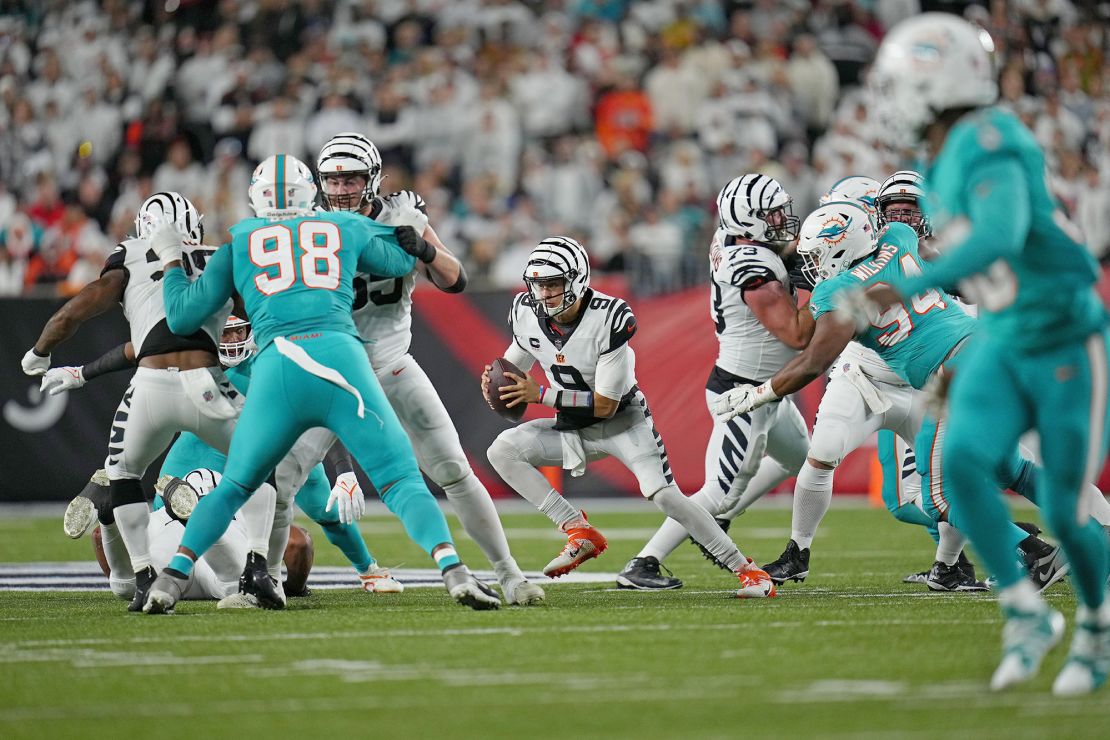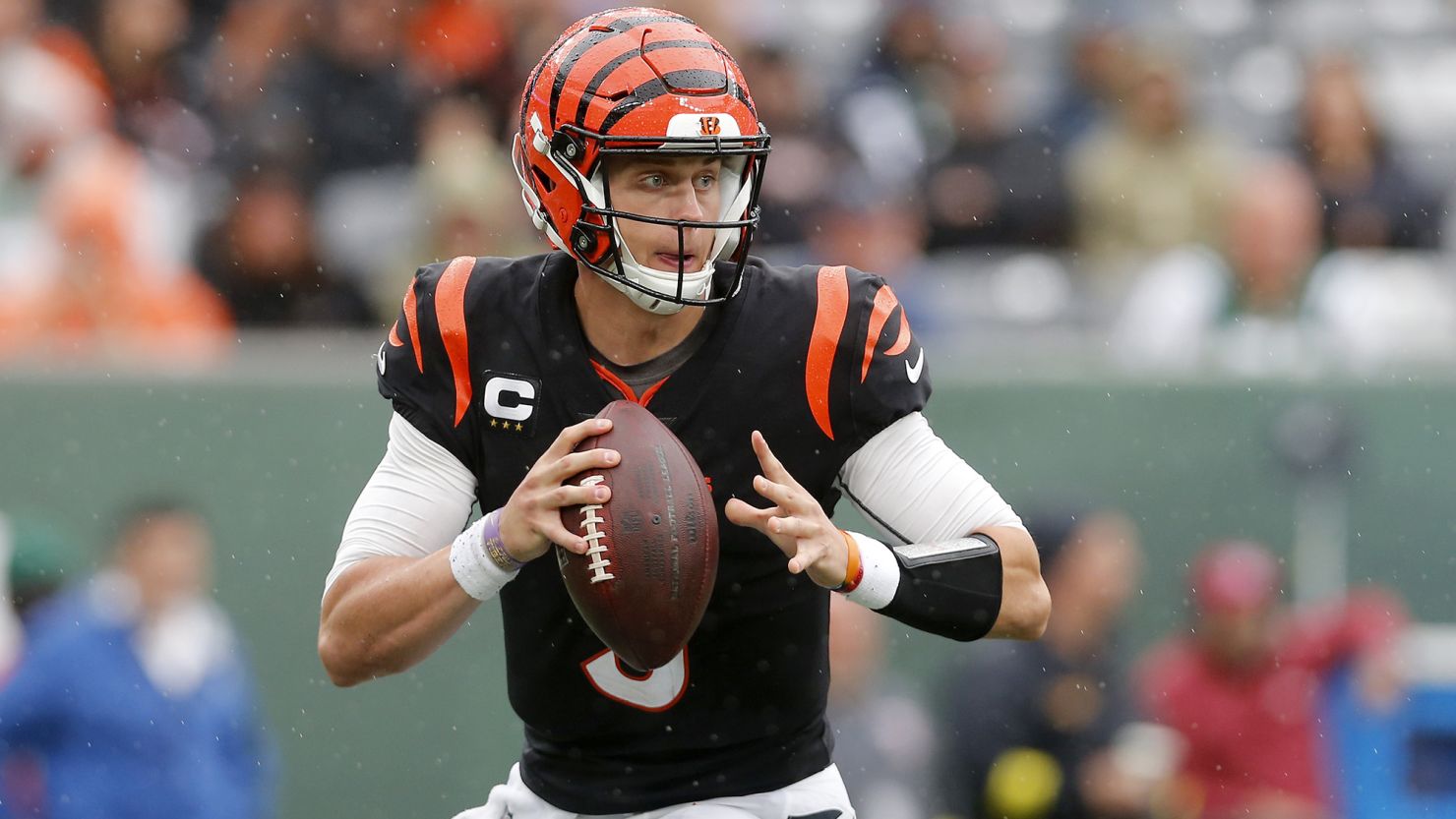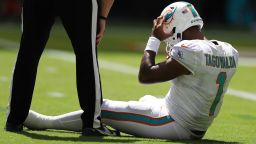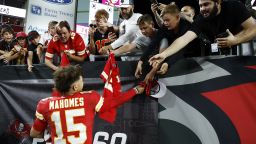Cincinnati Bengals quarterback Joe Burrow said on Wednesday that head injuries are an “inherent” risk of playing in the NFL.
Appearing on “The Colin Cowherd” podcast Wednesday, the 25-year-old said that while he’s likely suffered at least one concussion in his career, he hasn’t had any “long-lasting” effects from head injuries.
Burrow admitted those hits to the head led him to forget the second half of a game or even the entire game.
“You can make all the rules you want to make the game as safe as you possibly can but there is an inherent risk and danger with the game of football,” said Burrow when he was asked if those episodes of forgetting parts of or entire games had created anxiety for the Heisman Trophy winner.
“You have 300-pound men running 20 miles an hour trying to take your head off while standing still trying to ignore it and find receivers that are open … That’s part of the game I think. Part of what we signed up for.
“You’re going to have head injuries, you’re going to tear your ACL, you’re going to break your arm. That’s the game we play, that’s the life we live, and we get paid handsomely for it. So, I think going into every game, we know what we are getting ourselves into.”

‘Fencing response’
Burrow’s comments come just under a week after Miami Dolphins quarterback Tua Tagovailoa was stretched off the field against the Bengals having suffered a head injury.
Video showed Tagovailoa’s forearms were flexed and his fingers contorted – a sign that CNN Chief Medical Correspondent Dr. Sanjay Gupta, a neurosurgeon, said is a “fencing response” and can be linked to a brain injury.
Tagovailoa was later diagnosed with a concussion. Four days earlier, Tagovailoa appeared to suffer a head injury when his helmet hit the turf and he got up stumbling before being taken to the locker room for a concussion check.
The Dolphins initially announced Tagovailoa was questionable to return to the game with a head injury, but he came back out onto the field in the third quarter and finished the game throwing for 186 yards and a touchdown.
Tagovailoa told reporters after the game that he fell onto his back before his head hit the turf causing his back to lock up and the resulting stumble. He added that he was evaluated for a concussion but was ultimately cleared.
The incident led to an investigation by the NFL and the NFL Players Association (NFLPA) into how Tagovailoa’s injuries was handled, as well as a review of concussion protocols.
On Wednesday, according to a source familiar with discussions between the two parties, updates to the concussion protocol could come as early as Thursday.
“The urgency on getting it done before tomorrow is that we’ll have new protocols heading into Thursday night’s game, and that way we can have the new protocols in place before they play tomorrow night,” the source told CNN on Wednesday.
Current protocols prevent a player from returning to the field if they have any “gross motor instability” determined to be neurologically caused.
According to the source, the new goal is for any gross motor instability to be cause for removal from the field. “It’s ‘if you see a player fall down and not be able to get up as a result of any injury, they can’t return.’ That’s really the simplest way to describe it,” the source said.
The source noted that attorneys for the league and the players association are in ongoing discussions, including on the definition of gross motor instability.


